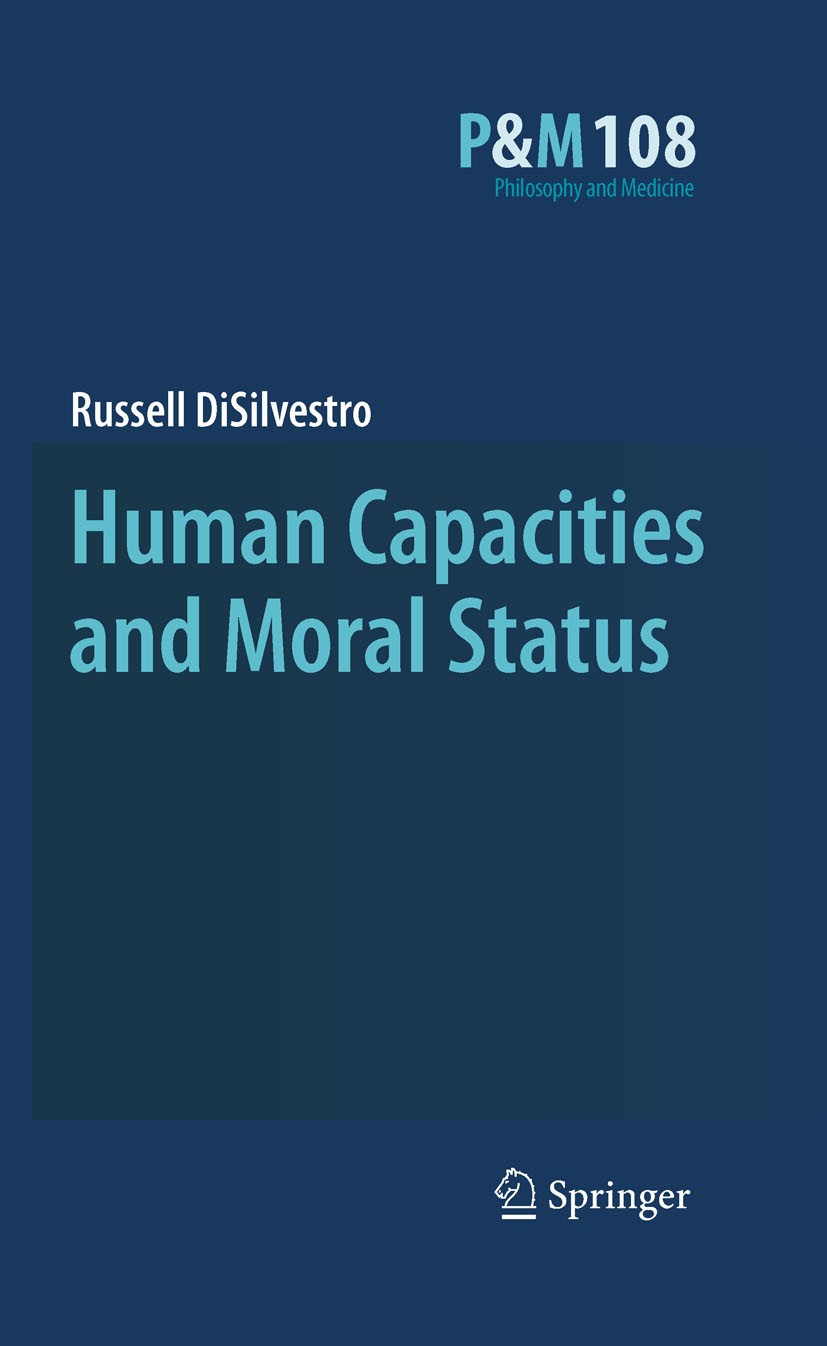| 书目名称 | Human Capacities and Moral Status | | 编辑 | Russell DiSilvestro | | 视频video | http://file.papertrans.cn/430/429021/429021.mp4 | | 概述 | Argues that all of a thing’s capacities are relevant to its moral status..Begins from the moral intuitions most people have when we become temporarily "incapacitated" as a result of repairable brain d | | 图书封面 |  | | 描述 | .Many debates about the moral status of things—for example, debates about the natural rights of human fetuses or nonhuman animals—eventually migrate towards a discussion of the capacities of the things in question—for example, their capacities to feel pain, think, or love. Yet the move towards capacities is often controversial: if a human’s capacities are the basis of its moral status, how could a human having lesser capacities than you and I have the same "serious" moral status as you and I? This book answers this question by arguing that if something is human, it has a set of typical human capacities; that if something has a set of typical human capacities, it has serious moral status; and thus all human beings have the same sort of serious moral status as you and I. Beginning from what our common intuitions tell us about situations involving "temporary incapacitation"—where a human organism has, then loses, then regains a certain capacity—this book argues for substantive conclusions regarding human fetuses and embryos, humans in a permanent vegetative state, humans suffering from brain diseases, and humans born with genetic disorders. Since these conclusions must have some impac | | 出版日期 | Book 20101st edition | | 关键词 | Ethics; Moral; World Health Assembly; bioethics; embryo; human capacity; margins of life; moral status; publ | | 版次 | 1 | | doi | https://doi.org/10.1007/978-90-481-8537-5 | | isbn_softcover | 978-94-007-3253-7 | | isbn_ebook | 978-90-481-8537-5 | | copyright | Springer Science+Business Media B.V. 2010 |
The information of publication is updating

|
|
 |Archiver|手机版|小黑屋|
派博传思国际
( 京公网安备110108008328)
GMT+8, 2026-2-8 13:08
|Archiver|手机版|小黑屋|
派博传思国际
( 京公网安备110108008328)
GMT+8, 2026-2-8 13:08


